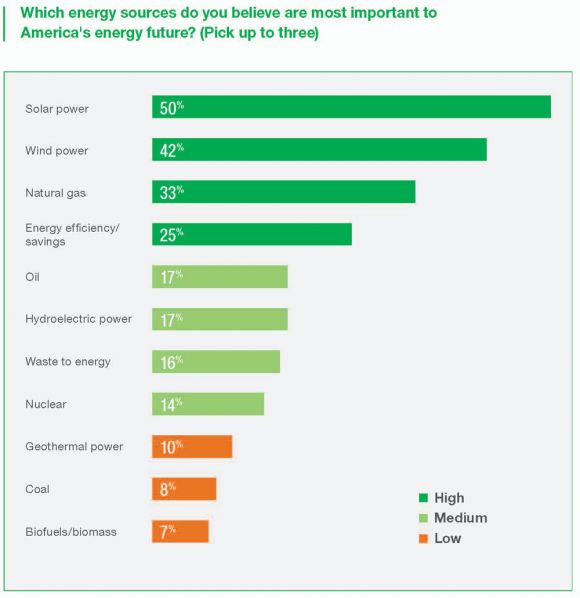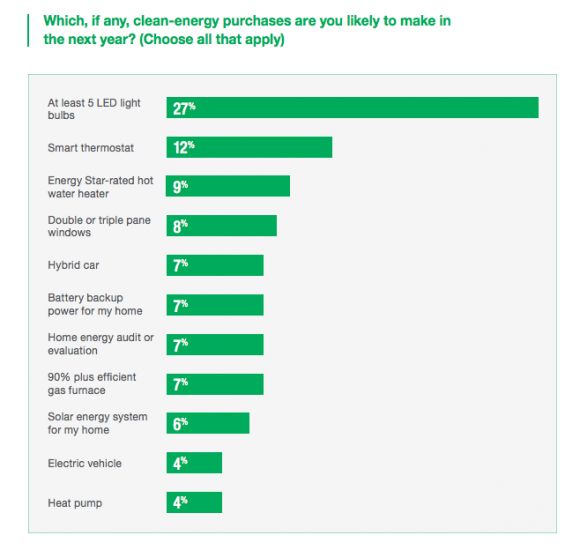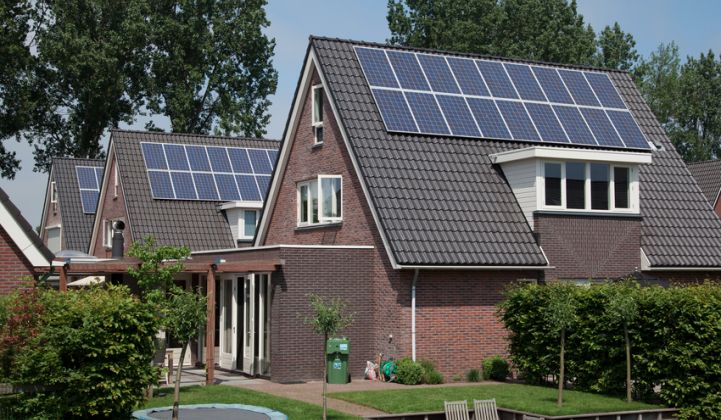Solar and wind power top the list of energy sources that Americans identify as most important to their energy future, according to a new survey from SolarCity and research firm Clean Edge.
Solar took the top spot among all major demographics and across all geographies, with wind a close second at 42 percent.

The findings were roughly in line with a recent Gallup survey that found most Americans wanted more of an emphasis on solar and wind energy.
When it comes to investing in clean energy for their own home, saving money is more important than environmental concerns. More than 80 percent of 1,400 respondents identified financial factors as their top reason for considering alternatives. “Returns trump sustainability,” said Ron Pernick, lead author of the report and managing director of Clean Edge.
In most cases, consumers preferred products with a relatively low upfront cost. LEDs were the most popular choice, with about one-quarter of respondents saying they planned to purchase at least five LED bulbs in the next year. The report found that LED bulbs in A-type lamps (the “classic” light bulb) had a compound annual growth rate of 145 percent from 2012 to 2013.
The price for LED bulbs has fallen consistently below $10 since 2013, making them more appealing for the average consumer. Throughout April, Philips will be offering some LED bulbs for as little as $2.50.
Although solar had broad acceptance among respondents, only 6 percent of those surveyed said they'd consider purchasing PV for their home in the next year.
The price point for larger clean energy purchases, such as rooftop solar, need to be much cheaper than the status quo in order to spark growth, said SolarCity CEO Lyndon Rive. The company's sweet spot for a 20-year solar lease needs to be 15 percent to 20 percent less than retail electricity rates in order to convince most consumers to switch, according to Rive.
Interestingly, battery storage and efficiency were tied for acceptance, with 7 percent of respondents saying they would buy battery backup for their home and another 7 percent saying they'd get a home energy audit sometime in the next year.




